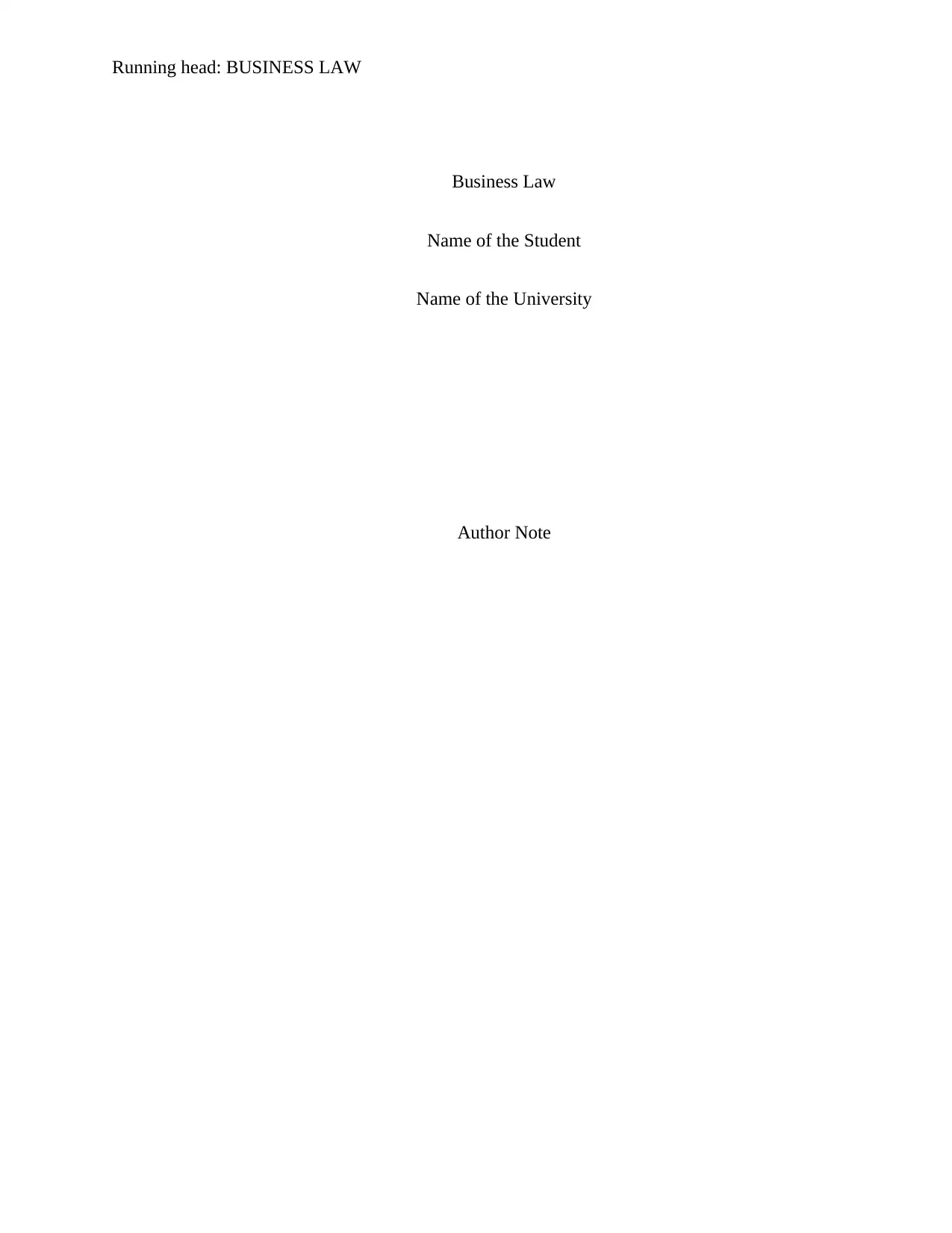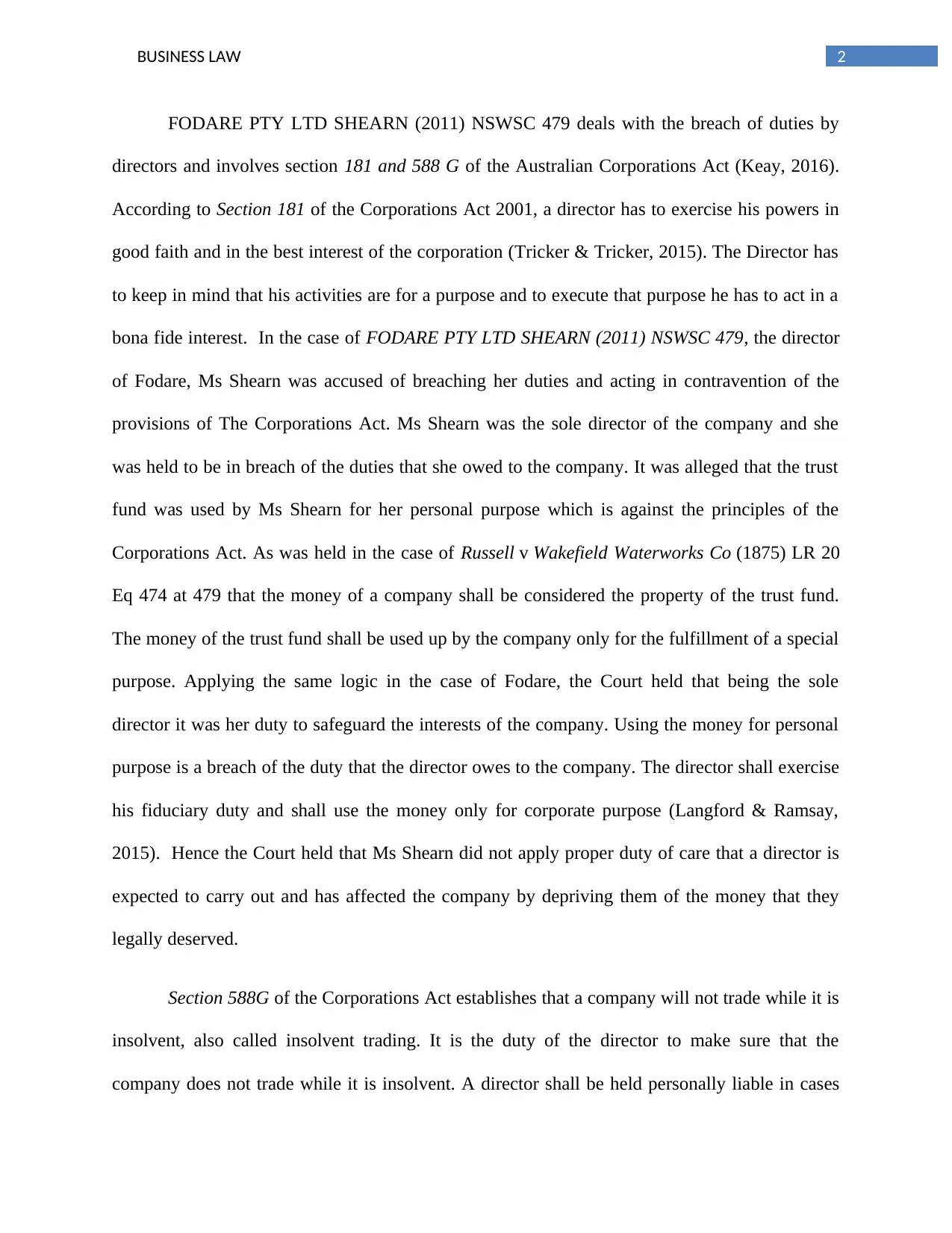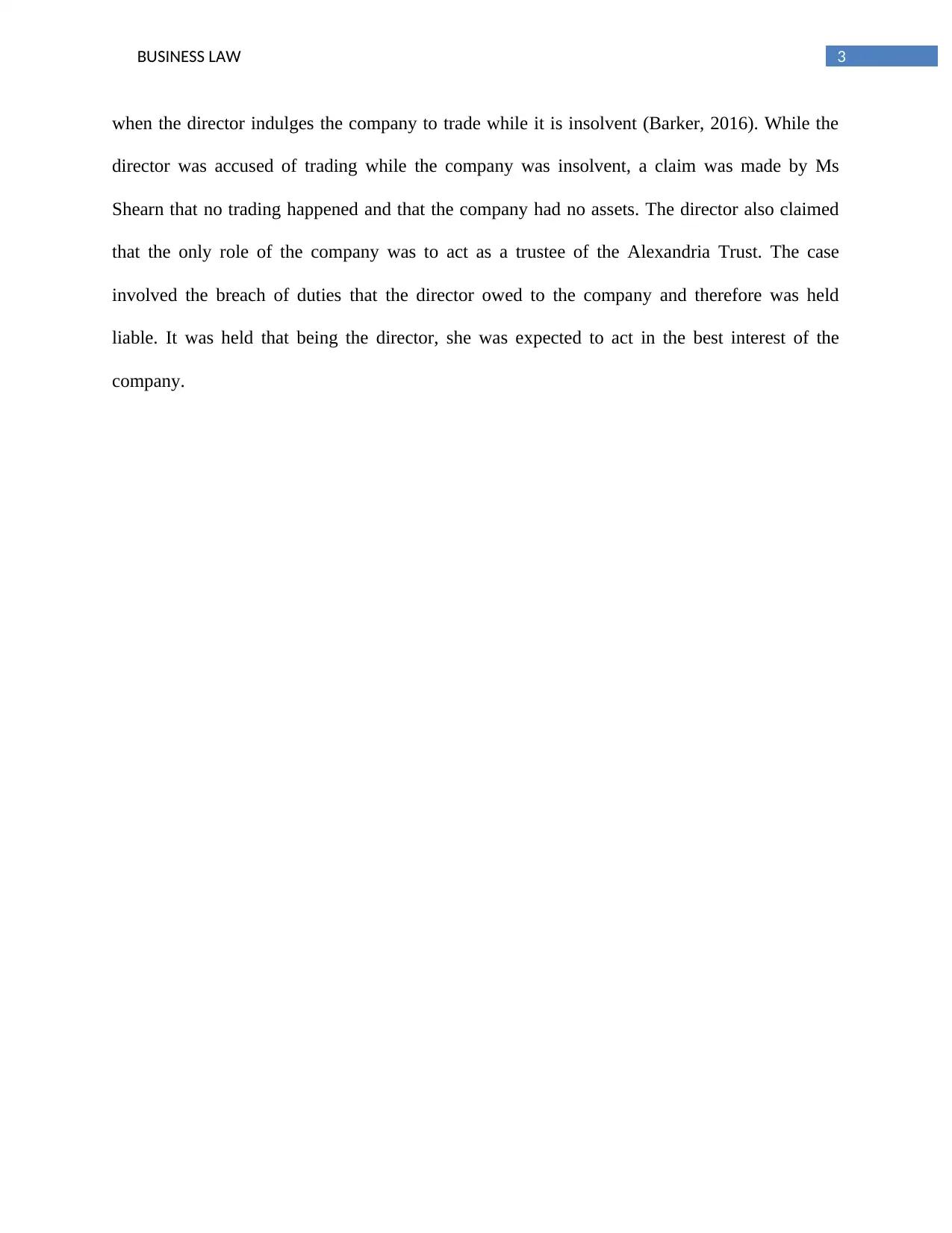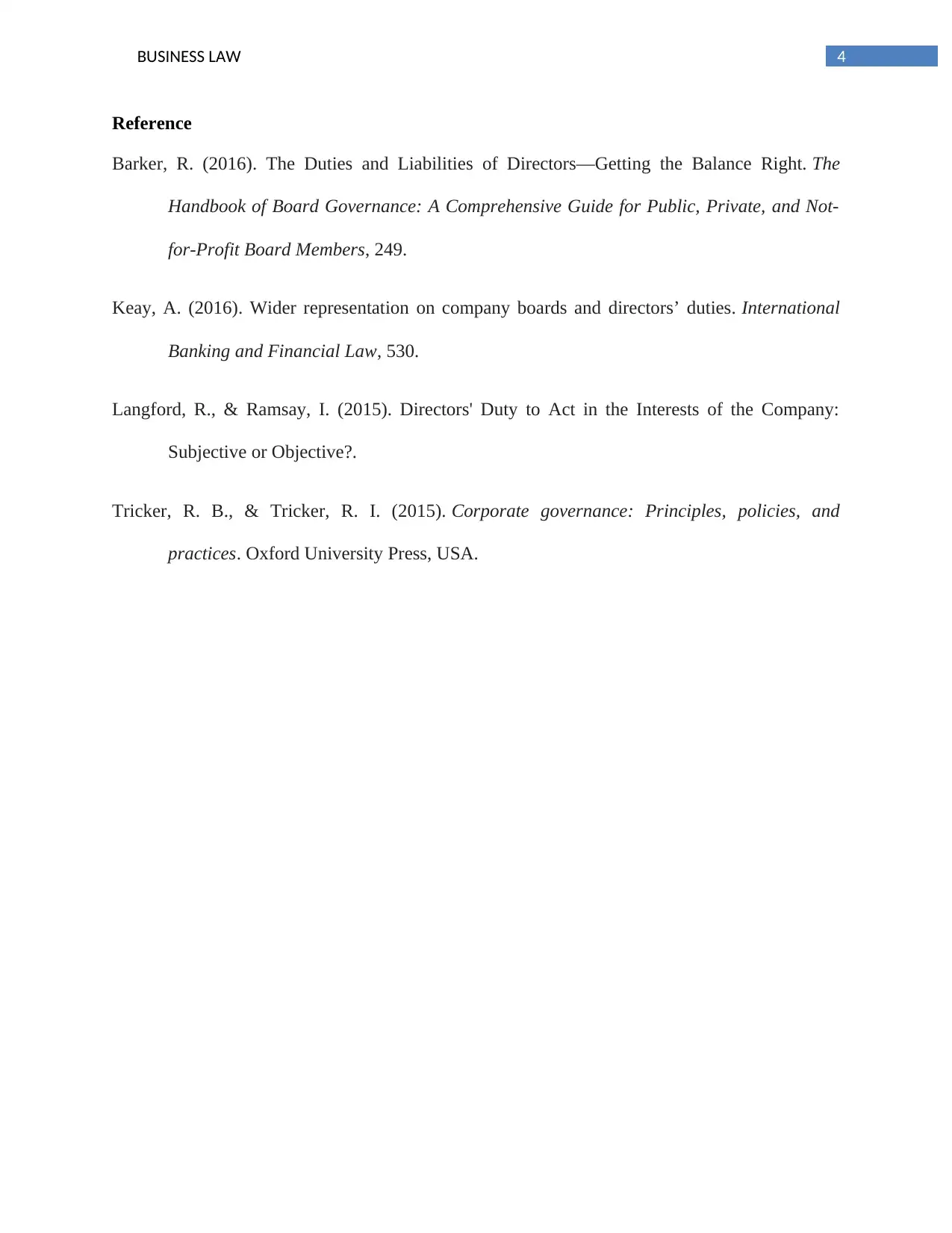Business Law Report: Analysis of Director's Duties and Corporate Law
VerifiedAdded on 2021/06/18
|4
|675
|56
Report
AI Summary
This business law report analyzes the case of FODARE PTY LTD SHEARN (2011) NSWSC 479, focusing on the breach of duties by a director under the Australian Corporations Act, specifically sections 181 and 588G. The report discusses the director's fiduciary duty to act in good faith and in the best interests of the corporation, as well as the implications of insolvent trading. The case highlights the misuse of company funds for personal purposes and the director's liability for failing to prevent the company from trading while insolvent. The analysis references relevant legal principles and case law, including Russell v Wakefield Waterworks Co (1875). The report emphasizes the importance of directors fulfilling their duties to safeguard the company's interests and adhere to the Corporations Act.
1 out of 4





![Fodare Pty Ltd v Shearn [2011] NSWSC 479: Director Duties Case Study](/_next/image/?url=https%3A%2F%2Fdesklib.com%2Fmedia%2Fimages%2Fbz%2Fe5781427ac544a2fa81db59f3d03f924.jpg&w=256&q=75)
![Fodare Pty Ltd v Shearn [2011] NSWSC 479: Director Duty Case Analysis](/_next/image/?url=https%3A%2F%2Fdesklib.com%2Fmedia%2Fimages%2Fmf%2Fb24438803f71439b897a53a3204582ca.jpg&w=256&q=75)

![Analysis of Fodare Pyt Ltd. V Shearn [2011] NSWSC 479 Case](/_next/image/?url=https%3A%2F%2Fdesklib.com%2Fmedia%2Fimages%2Fto%2Fc003c47972d54ac499b6fca5329d3bb6.jpg&w=256&q=75)

![[object Object]](/_next/static/media/star-bottom.7253800d.svg)